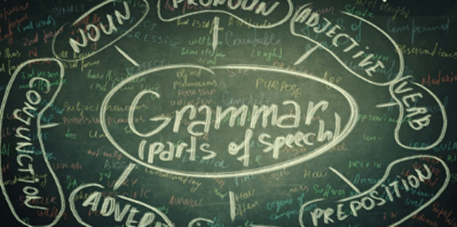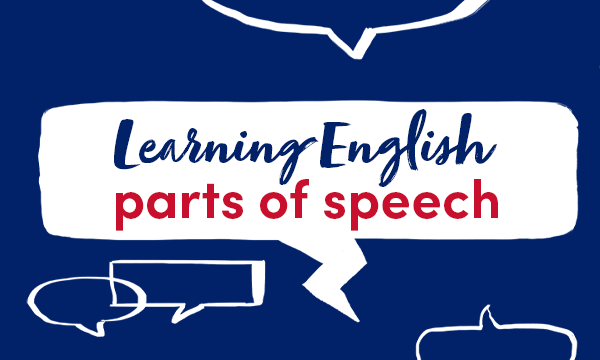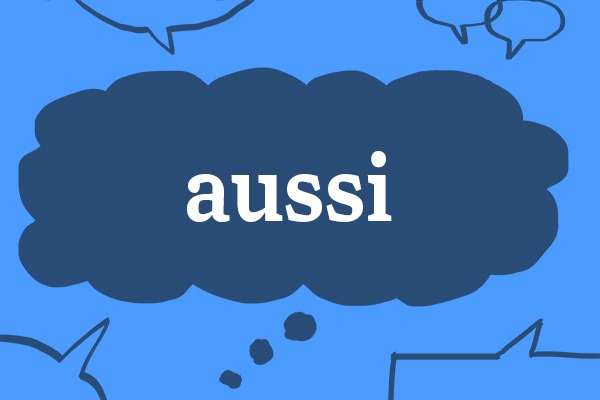
- A verb tells us about an action or a state of being. Ordinary verbs are called main verbs. A main verb is sometimes called a ‘doing word’.
| come | go | think |
| want | economize | believe |
A special group of verbs are called auxiliary verbs. These can be put together with main verbs to form different tenses.
I am thinking.
She has seen the film already.
I can help you.
We might need to.
- A noun is a word that labels a thing or an idea. Nouns are sometimes called ‘naming words’.
| table | book | ugliness |
| time | animal | thing |
- If we do not want to repeat the same noun in a sentence or a paragraph we can replace it with a pronoun. A pronoun is a word that is used instead of a noun phrase or a noun.
Gary saw Sue so he asked her to help him.
Ross was hungry so he stopped at a burger bar.
- An adjective gives more information about a noun. Adjectives help us describe or pick out which particular thing among many is being referred to. Adjectives are sometimes called ‘describing words’.
| a man | a tall man |
| their TV | their new wide-screen TV |
| the cat | the fat black-and-white cat |
- A determiner is used to point more precisely to the person, thing, or idea that is being talked about. Examples of determiners are definite and indefinite articles and possessives.
| the cat | a man |
| my aunt | their TV |
- An adverb gives information about the way that an action is carried out or when and where it takes place. Many adverbs are formed from adjectives by adding -ly.
She ran quickly down the path.
The children laughed hysterically.
He lifted the box carefully.
Some adverbs can also be used before adjectives.
He was a rather tall man.
This cake is quite nice.
It’s a very hot day.
Adverbs can also introduce a sentence.
Fortunately, the rain stayed away.
Honestly, I can’t help it.
- A preposition is one of a small group of words that can be used with nouns and verbs. Prepositions give information about position or movement.
| on the bridge | over the rooftops |
| in the morning | at the gates |
When a preposition is used in front of a noun, the two together do the work of an adverb.
He is coming now. He is coming in the morning.
I found him there. I found him near the gates.
- A conjunction joins two or more nouns or clauses to each other. Conjunctions are sometimes called ‘joining words’.
I went to the shop and bought some bread.
I bought some bread, but I forgot to get the milk.
Many words can act as more than one part of speech. It is not unusual for an English word to be a noun in one sentence and a verb in another sentence.
Jamal scored several runs.
She runs half a mile each morning.
I’ve been chosen for the school play.
Christopher and Angus play golf together on Fridays.
For further information on English Grammar, visit: https://grammar.collinsdictionary.com/easy-learning
Come back for other blogs on using English in everyday situations:
https://blog.collinsdictionary.com/language-learners/learning-english
All opinions expressed on this blog are those of the individual writers, and do not necessarily reflect the opinions or policies of Collins, or its parent company, HarperCollins.



